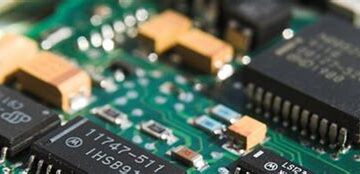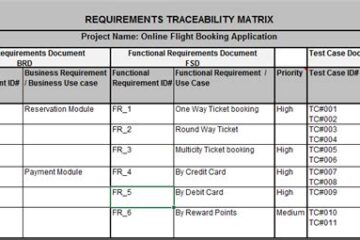Introduction to Flexible PCBs
Flexible printed circuit boards (PCBs) have revolutionized the electronics industry with their versatility, durability, and space-saving design. Unlike traditional rigid PCBs, flexible PCBs can bend, twist, and conform to various shapes, making them ideal for applications that require flexibility and compact packaging. With the increasing demand for smaller, lighter, and more adaptable electronic devices, the market for flexible PCBs has grown significantly, and China has emerged as a leading player in the industry.
What are Flexible PCBs?
Flexible PCBs, also known as flex circuits, are printed circuit boards made from flexible materials such as polyimide or polyester. These materials allow the PCB to bend and flex without compromising its electrical connectivity or structural integrity. Flexible PCBs consist of a thin layer of conductive copper traces bonded to a flexible substrate, which can be single-sided, double-sided, or multi-layered, depending on the complexity of the design.
Advantages of Flexible PCBs
Flexible PCBs offer several advantages over traditional rigid PCBs:
-
Flexibility and Durability: Flexible PCBs can withstand repeated bending and flexing without breaking or losing their electrical properties, making them ideal for applications that require movement or are subject to vibration and shock.
-
Space-saving Design: The ability to bend and conform to different shapes allows flexible PCBs to fit into tight spaces and reduce the overall size of electronic devices.
-
Lightweight: Flexible PCBs are thinner and lighter than rigid PCBs, contributing to the overall weight reduction of electronic devices.
-
Improved Signal Integrity: The shorter distances between components and the reduced need for connectors in flexible PCBs result in improved signal integrity and reduced electromagnetic interference (EMI).
-
Cost-effective: Flexible PCBs can reduce the number of connectors and assembly steps required, leading to lower manufacturing costs and faster production times.
The Flexible PCB Market in China
China has become a global hub for PCB manufacturing, and the flexible PCB market is no exception. The country’s vast manufacturing capabilities, skilled workforce, and competitive pricing have attracted numerous international electronics companies to source their flexible PCBs from Chinese manufacturers.
Market Overview
The flexible PCB market in China has experienced significant growth in recent years, driven by the increasing demand for consumer electronics, automotive electronics, and medical devices. According to a report by Grand View Research, the global flexible PCB market size was valued at USD 15.2 billion in 2020 and is expected to grow at a compound annual growth rate (CAGR) of 11.9% from 2021 to 2028. China is expected to maintain its dominant position in the market during this period.
Key Players in the Chinese Flexible PCB Market
Several Chinese companies have established themselves as leading flexible PCB manufacturers, catering to both domestic and international customers. Some of the key players in the Chinese flexible PCB market include:
-
Zhen Ding Technology Holding Limited (ZDT): ZDT is one of the largest PCB manufacturers in China, with a strong presence in the flexible PCB market. The company serves a wide range of industries, including consumer electronics, automotive, and telecommunications.
-
Nippon Mektron: Nippon Mektron is a Japanese company with a significant manufacturing presence in China. The company specializes in the production of flexible PCBs and is a key supplier to the automotive and consumer electronics industries.
-
Career Technology (Mfg.) Co., Ltd.: Career Technology is a Taiwan-based company with manufacturing facilities in China. The company offers a wide range of PCB solutions, including flexible PCBs, and serves customers in the consumer electronics, automotive, and medical device industries.
-
Flexium Interconnect, Inc.: Flexium Interconnect is another Taiwan-based company with a strong presence in the Chinese flexible PCB market. The company focuses on the production of high-end flexible PCBs for applications such as smartphones, wearables, and automotive electronics.
-
Xiamen Hongxin Electron-Tech Co., Ltd.: Xiamen Hongxin Electron-Tech is a Chinese company that specializes in the manufacture of flexible PCBs and flexible printed circuits (FPCs). The company serves a diverse range of industries, including consumer electronics, medical devices, and industrial equipment.
Industry Trends and Developments
The Chinese flexible PCB market is constantly evolving to meet the changing demands of the electronics industry. Some of the key trends and developments in the market include:
-
Miniaturization: As electronic devices continue to shrink in size, there is a growing demand for smaller and more compact flexible PCBs. Chinese manufacturers are investing in advanced technologies and processes to produce ultra-thin and high-density flexible PCBs.
-
High-frequency Applications: With the advent of 5G technology and the increasing demand for high-speed data transmission, there is a growing need for flexible PCBs that can support high-frequency applications. Chinese manufacturers are developing advanced materials and manufacturing processes to meet these requirements.
-
Automotive Electronics: The automotive industry is increasingly adopting flexible PCBs for applications such as infotainment systems, driver assistance systems, and electric vehicle battery management. Chinese flexible PCB manufacturers are positioning themselves to capitalize on this growing market segment.
-
Medical Devices: Flexible PCBs are finding increasing applications in the medical device industry, particularly in wearable and implantable devices. Chinese manufacturers are investing in clean room facilities and obtaining necessary certifications to serve this demanding market.
-
Environmental Sustainability: With growing concerns over environmental sustainability, Chinese flexible PCB manufacturers are adopting eco-friendly materials and processes. This includes the use of halogen-free materials, lead-free soldering, and the implementation of waste reduction and recycling programs.
Choosing a Flexible PCB Manufacturer in China
When selecting a flexible PCB manufacturer in China, there are several factors to consider to ensure a successful partnership.
Technical Capabilities
It is essential to choose a manufacturer with the technical capabilities to meet your specific requirements. Consider the following:
-
Manufacturing Equipment: Ensure that the manufacturer has state-of-the-art equipment and technology to produce high-quality flexible PCBs consistently.
-
Material Selection: Check if the manufacturer has experience working with the materials required for your application, such as polyimide, polyester, or specialized substrates.
-
Design Support: Look for a manufacturer that can provide design support and guidance to optimize your flexible PCB layout for manufacturability and performance.
-
Quality Control: Inquire about the manufacturer’s quality control processes and certifications, such as ISO 9001, ISO 14001, and IATF 16949, to ensure that they adhere to strict quality standards.
Production Capacity and Lead Times
Consider the manufacturer’s production capacity and lead times to ensure that they can meet your volume requirements and delivery schedules. Some manufacturers may offer expedited services for time-sensitive projects, but this may come at a premium cost.
Communication and Support
Effective communication is crucial when working with an overseas manufacturer. Look for a manufacturer that has a dedicated sales and support team, preferably with English-speaking representatives. They should be responsive to your inquiries and provide regular updates on the progress of your project.
Cost and Payment Terms
While cost is an important consideration, it should not be the sole determining factor when choosing a flexible PCB manufacturer. Strike a balance between cost, quality, and service to ensure the best value for your investment. Also, clarify the payment terms and any additional costs, such as tooling fees, shipping, or import duties, to avoid surprises down the line.
Intellectual Property Protection
If your flexible PCB design contains proprietary information or trade secrets, it is crucial to choose a manufacturer that respects and protects your intellectual property rights. Consider signing a non-disclosure agreement (NDA) and thoroughly vet the manufacturer’s reputation and track record in safeguarding customer information.

FAQs
-
Q: What is the minimum order quantity (MOQ) for flexible PCBs from Chinese manufacturers?
A: The MOQ for flexible PCBs varies among manufacturers, but it is generally higher than that for rigid PCBs due to the specialized materials and processes involved. Some manufacturers may offer low MOQs for prototyping or small-volume production, while others may require larger quantities for cost-effective production. -
Q: How long does it typically take to receive a flexible PCB order from a Chinese manufacturer?
A: Lead times for flexible PCBs depend on factors such as the complexity of the design, the volume of the order, and the manufacturer’s production capacity. Typical lead times range from 2-4 weeks for standard designs and can extend to 6-8 weeks or more for complex or high-volume orders. It is essential to communicate your timeline requirements with the manufacturer and plan accordingly. -
Q: Can Chinese flexible PCB manufacturers provide assembly services?
A: Yes, many Chinese flexible PCB manufacturers offer assembly services, including surface mount technology (SMT) and through-hole assembly. Some manufacturers may also provide box build services, where they assemble the complete product, including the flexible PCB and other components. Discuss your assembly requirements with the manufacturer to determine their capabilities and pricing. -
Q: How can I ensure the quality of flexible PCBs from a Chinese manufacturer?
A: To ensure the quality of your flexible PCBs, choose a manufacturer with a proven track record and robust quality control processes. Look for certifications such as ISO 9001, ISO 14001, and IATF 16949, which demonstrate the manufacturer’s commitment to quality and environmental standards. Request references from existing customers and consider conducting an on-site audit or third-party inspection to verify the manufacturer’s capabilities and compliance with your requirements. -
Q: Are there any tariffs or import duties on flexible PCBs sourced from China?
A: Tariffs and import duties on flexible PCBs sourced from China may vary depending on your country’s trade policies and agreements. In some cases, tariffs imposed on Chinese goods can increase the overall cost of importing flexible PCBs. It is essential to research the applicable tariffs and duties for your country and factor them into your cost calculations. Consider working with a customs broker or logistics provider to help navigate the import process and ensure compliance with regulations.
Conclusion
China’s flexible PCB manufacturing industry offers a compelling combination of technical expertise, production capacity, and competitive pricing, making it an attractive option for electronics companies worldwide. By carefully evaluating the capabilities, quality, and service of potential manufacturers, you can find a reliable partner to bring your flexible PCB designs to life.
As the demand for flexible PCBs continues to grow, driven by the proliferation of smart devices, wearables, and advanced automotive electronics, the Chinese flexible PCB market is poised for further expansion and innovation. By staying informed about industry trends and developments, and fostering strong relationships with Chinese manufacturers, you can position your company to capitalize on the opportunities presented by this dynamic and evolving market.



0 Comments